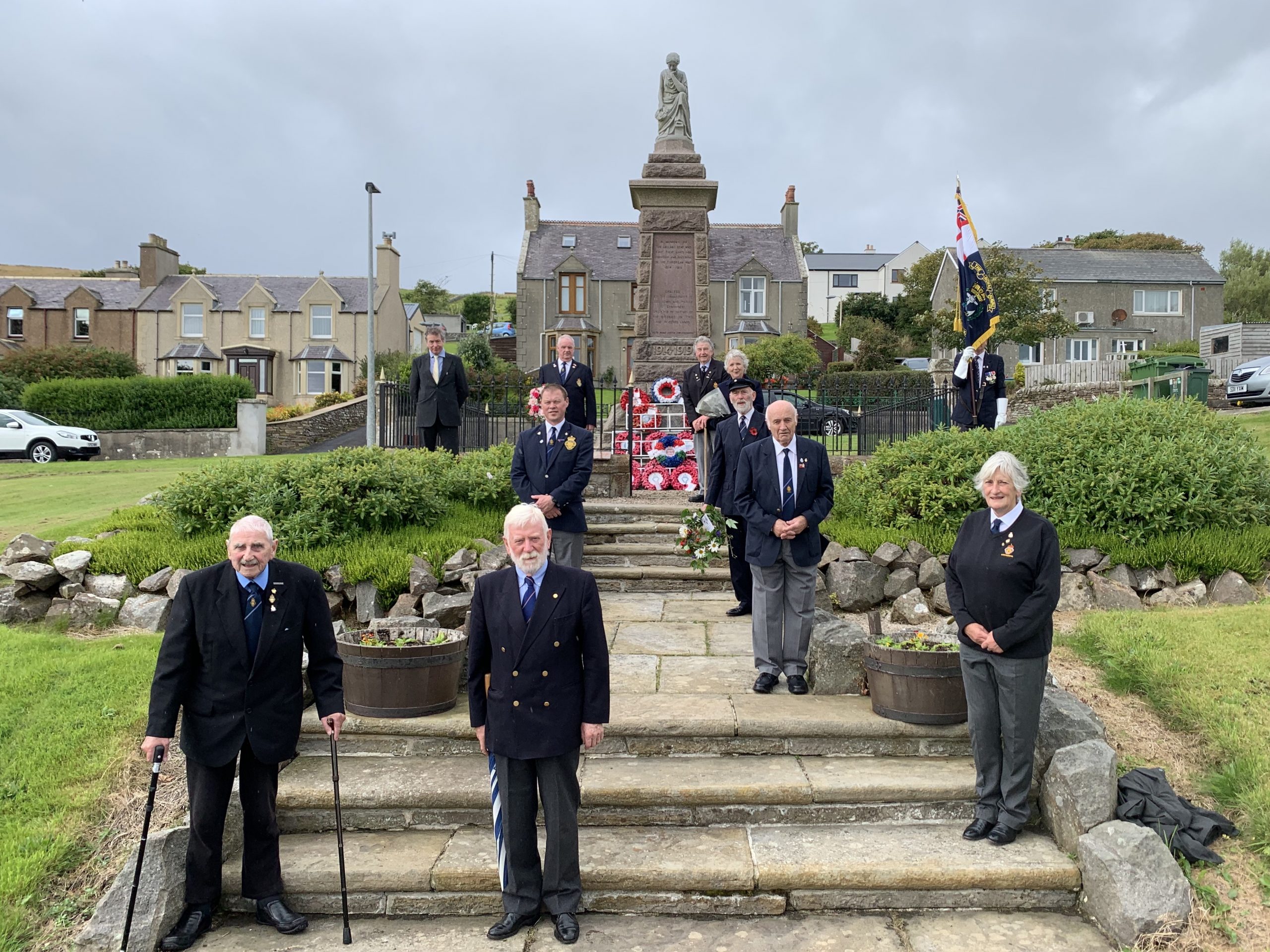

Tributes paid in Stromness on Merchant Navy Day

(The Orcadian/Craig Taylor)
A SERVICE of remembrance took place in front of Stromness War Memorial today, Merchant Navy Day, when tributes in particular were paid to Orkney’s first casualty of World War Two.
Merchant Navy Day is held annually on September 3, in order to remember those who gave their lives during conflict, and to raise awareness of the UK’s dependence on seafarers.
Orkney wartime historian Brian Budge arranged and attended the event along members of the Stromness Branch of the Royal British Legion. Members of the Orkney branch of the Royal Naval Association were also present, as well as former Merchant Navy seafarers.
Mr Budge had arranged a wreath to be placed at the memorial in memory of Elizabeth Brookes of Stromness, who died a widow, aged 63, in the first hours of World War Two when German submarine U30 sank the transatlantic liner Athenia, which was on its way to Canada.
That wreath was laid by Steve Lobaczewski, president of the Stromness Royal British Legion, while past president Ian Taylor conducted the service.
The memorial event was also attended by Lord-Lieutenant of Orkney Elaine Grieve, who laid flowers, and Bill Spence who previously held the position, who laid a wreath.
Mr Spence holds the post of president of the Durham Association, which represents former officers, and now also seamen, of the New Zealand Shipping Company, and the Federal Steam Navigation Company.
Mr Spence sailed with the New Zealand Shipping Company, hence his connection with the organisation.
Elsewhere, Orkney and Shetland MP Alistair Carmichael also joined those marking Merchant Navy Day.
Commenting, Mr Carmichael said: “The merchant navy has a longstanding and proud connection to the Northern Isles. Merchant navy sailors and officers play a vital role in our economy which has been amplified during the current crisis. Supply lines are more important than ever with 95 per cent of UK trade being carried by sea. The global economy and the financial recovery after the pandemic relies on maritime trade, for food, fuel, medicines and other essential goods.
“This year saw some 400,000 seafarers stranded by Covid-19 travel restrictions. Many seafarers have had to face extended hardship this year separated from their families. This is exactly why I recently highlighted the need for the UK to lead the way in international cooperation for seafarer welfare.”
He continued: “The Government must move ahead and sign up to the International Maritime Organisation’s plan to ensure crew changeovers can resume. Working conditions for merchant navy workers cannot be ignored in this crisis. We know there has been a temptation on the part of some maritime employers in the past to take any opportunity to undermine pay and conditions. Today in particular we need a strong stance from the government against this.”